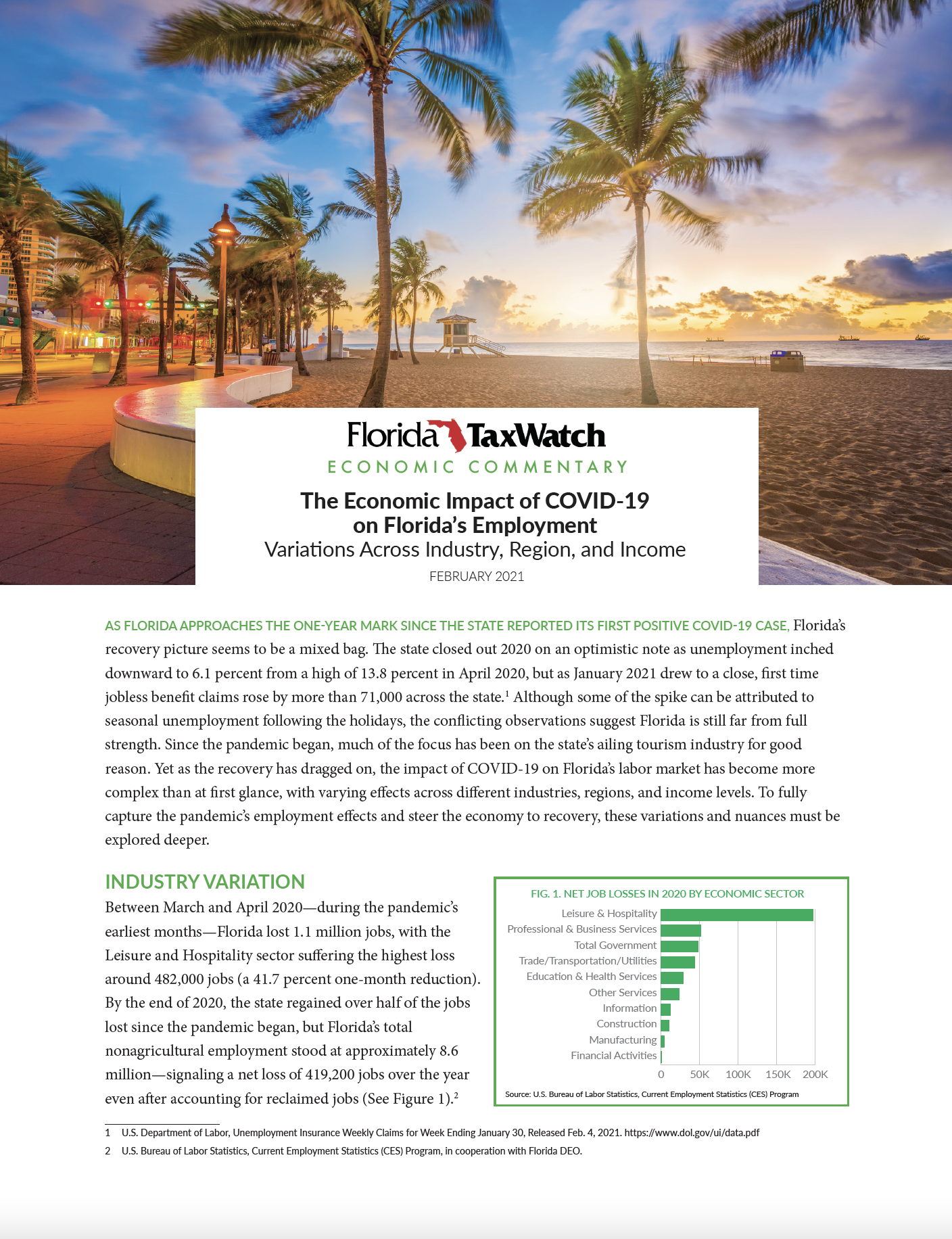The Economic Impact of COVID-19 on Florida’s Employment
Variations Across Industry, Region, and Income

AS FLORIDA APPROACHES THE ONE-YEAR MARK SINCE THE STATE REPORTED ITS FIRST POSITIVE COVID-19 CASE, Florida’s recovery picture seems to be a mixed bag. The state closed out 2020 on an optimistic note as unemployment inched downward to 6.1 percent from a high of 13.8 percent in April 2020, but as January 2021 drew to a close, first time jobless benefit claims rose by more than 71,000 across the state.1 Although some of the spike can be attributed to seasonal unemployment following the holidays, the conflicting observations suggest Florida is still far from full strength. Since the pandemic began, much of the focus has been on the state’s ailing tourism industry for good reason. Yet as the recovery has dragged on, the impact of COVID-19 on Florida’s labor market has become more complex than at first glance, with varying effects across different industries, regions, and income levels. To fully capture the pandemic’s employment effects and steer the economy to recovery, these variations and nuances must be explored deeper.
As Florida continues to emerge from the economic downturn that engulfed the state last year, challenges and uncertainty abound. On the surface, the pandemic has crippled the tourism industry, yet a deeper dive reveals other important, more nuanced, variations across industries, regions, and income levels. There is no “one-size fits all” approach to remedy these employment effects, but a more granular view can certainly aid policymakers in tailoring responses, some of which are recommended in Florida TaxWatch’s recent report Bringing The Sunshine State Back: The Impact of COVID-19 Across Florida’s Economy & Options for Recovery. These recommendations, along with many others, offer a starting point to holistically improve Florida’s labor market throughout 2021.